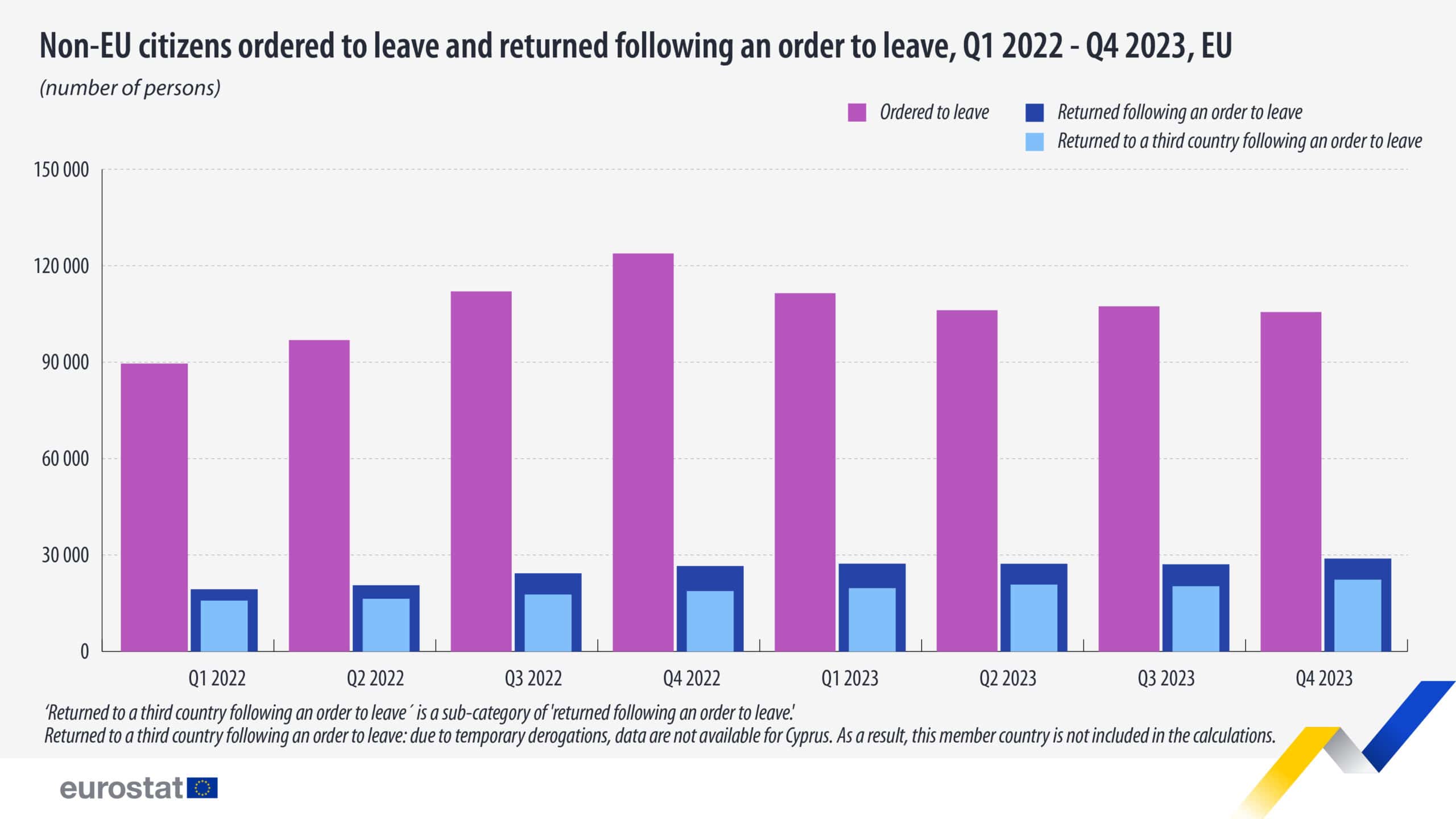In the final quarter of 2023, the European Union witnessed significant movements in immigration orders and returns, according to recent data released by Eurostat.
During this period, a total of 105,585 non-EU citizens were ordered to leave an EU country, marking a notable decline of 15% compared to the same quarter in 2022. However, in a contrasting trend, the number of individuals returned to another country following such orders experienced an increase of 8% from the previous year.
In terms of national statistics, France, Germany, and Greece emerged as significant players in immigration orders. France recorded the highest number with 35,175 individuals, followed by Germany with 12,650, and Greece with 6,925.
Moreover, when compared with the third quarter of 2023, there was a slight decrease of 2% in orders to leave, while returns saw a modest rise of 6%.
Interestingly, the majority of individuals (77%) returned in the fourth quarter of 2023 found themselves outside the EU.
Analysing the demographics of those ordered to leave, Moroccan citizens accounted for the largest share at 8%, followed by Algerian citizens at 7%. Turkish, Syrian, Georgian, and Afghan citizens each comprised 6% of the total.
Meanwhile, among those returned to another country, citizens of Georgia constituted the highest percentage at 12%, followed by those from Turkey at 8%. Albania, Morocco, Algeria, and Moldova each represented 4% of the total returns.

However, when it came to returns to another country, Germany led the pack with 4,180 individuals, followed closely by France with 3,570, and Croatia with 2,430.
The data from the fourth quarter of 2023 reflects dynamic shifts in immigration patterns within the EU, with implications for both policy and societal integration.
(Source: Eurostat)

